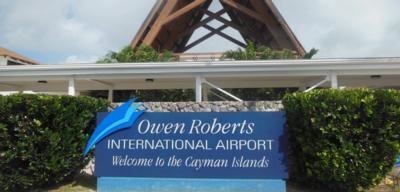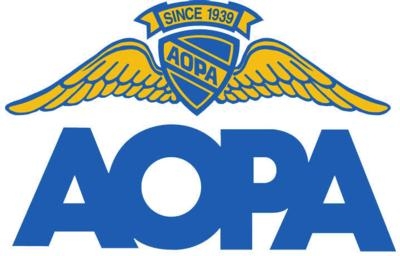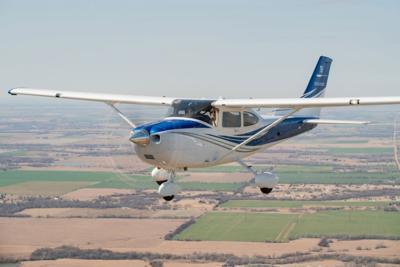Short Piece Minimizes Costs of Cayman Landings in Failed Fact Check Attempt
Longtime expert in affordable private flight to the Caribbean, Jim Parker, announced a series of deleterious changes to flights to the Cayman Islands for the regular, workaday private pilot.

Parker is a lifetime guide and the founder of Caribbean Flying Adventures, having led legions of private aircraft on tours outside the US while navigating the oftentimes troublesome bureaucracies involved with flight to Caribbean nations. Flying for the ‘average man’ often lends itself to being targeted for higher, more exorbitant fees and charges - after all, don’t only rich people own private planes?
Parker took the association to task after they countersignaled his February 15th warning to pilots. Last week, Parker highlighted a series of institutional changes put into place by Cayman aviation and airport authorities that add significant extra cost in order to land at their largest airport. AOPA's short blurb was published on Friday, titled "CAYMAN ISLANDS WELCOME GA TRAVEL", with the subheading "PILOTSENCOURAGED[sp] TO PLAN AHEAD". It sounds like an easy bit of damage control, meant to assuage anyone worried about a prospective trip to the Caymans when hearing rumors of runaway costs and bureaucratic greed.

The disagreement between the two parties lies in their assessment of the changing costs around some of the new mandates. Under recent changes, inbound aircraft are now required to pay for their handling services, something utterly foreign to the average small-single pilot and comfortable routine to the upscale, jet-set globetrotter. While a Gulfstream pilot has zero complaint with having their aircraft taken care of by ground crew, it's a laughable prospect to the ordinary PPL taking his well-weathered, 1983 Cessna 182 across the sea for an island getaway. Paying for handling for single engine, piston aircraft basically amounts to having someone unscrew the gas cap and hold the fuel nozzle - more trouble than it’s worth to cost-conscious pilots. (Although in fairness, the handlers may have access to a stepstool. Perhaps that's worth a cool $20 at most.)
AOPA, led by a Boss pulling down about 1.5 million dollars a year, downplayed the charges involved with the new landing requirements as, "only $10 to $15 for a Cessna 182 with parking still at $5 per day". Parker's calculations are far and away out of step with such affordability. Instead, using actual data and up-to-date information, he comes to a downright painful $643 for a 3 day visit with a single pilot and a passenger taking the 182 to the Caymans. That figure includes a 25% landing premium for arrivals between 11am and 4pm, a $65 per-passenger task, customs overtime charges for weekend arrivals/departures, and a $175 handling fee and its accompanying 15% administrative surcharge over all other fees. AOPA's claim of "$10-15 per day" seems to be based on nothing more than a cursory internet search - and Parker says their costs aren’t even quoted in the right units, since the islands use their own currency.

The only thing that seems to rationalize their "expert" opinion is a document from September of 2021 issued by the Cayman Airport Authority which outlines a now defunct method of obtaining approval for landing. Parker notes that not only is the document very much outdated, being written all about COVID protocols now rescinded, pilots looking to fly there would never receive their landing approval to begin with.
One could, if optimistic, chalk up the AOPA advice to a simple case of someone hurrying to publish a trending topic before the weekend, and feeling comfortable with a low level of expertise in a matter. Unfortunately, they tried to fact check the last industry veteran they should have. Hopefully, the slip up is just a minor case of "Friday afternoon workmanship", and not emblematic of an association growing further apathetic to the lower rungs of the tax bracket - after all, what's another couple hundred bucks to a Gulfstream operator? Aren't they the prime Cayman tourist demographic? For decades, the association fought for lower, less predatory fees in airports throughout the country. Publishing a carte blanche endorsement saying "all is well in the Caymans" could be seen as granting blessing to their cost increases, whether it's the goal of the piece or not.
"If you are an AOPA member, you may want to encourage AOPA to work with the Cayman government to encourage, rather than discourage, small GA aircraft for tourism," said Parker in his letter addressing the AOPA piece. "Putting out a statement that the Caymans is open and welcoming with mandatory arrival slots and high fees will only signal to other islands that could potentially raise their fees without pushback from the U.S. GA community. One of AOPA’s strengths was going after Signature and other FBOs regarding high fees? What should that not also be a mission for Caribbean airports?"
 Airborne 10.14.25: Laser Threat, VeriJet BK, Duffy Threatens Problem Controllers
Airborne 10.14.25: Laser Threat, VeriJet BK, Duffy Threatens Problem Controllers Airborne 10.15.25: Phantom 3500 Confounds, Citation CJ3 Gen2 TC, True Blue Power
Airborne 10.15.25: Phantom 3500 Confounds, Citation CJ3 Gen2 TC, True Blue Power Aero-News: Quote of the Day (10.17.25)
Aero-News: Quote of the Day (10.17.25) NTSB Prelim: Piper PA-28-180
NTSB Prelim: Piper PA-28-180 ANN FAQ: Contributing To Aero-TV
ANN FAQ: Contributing To Aero-TV





